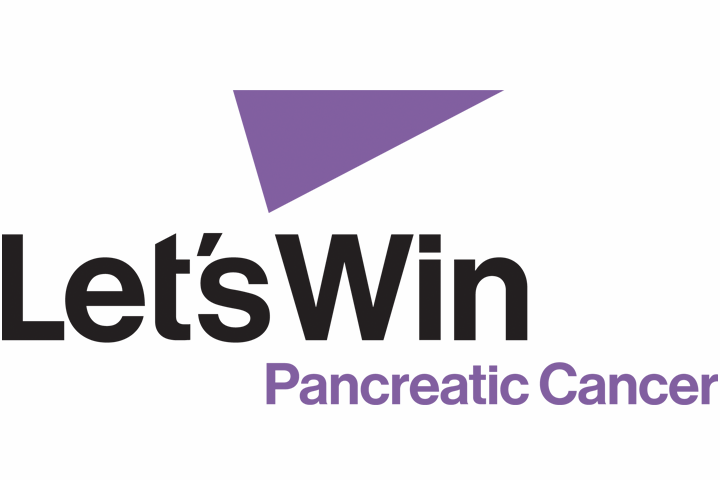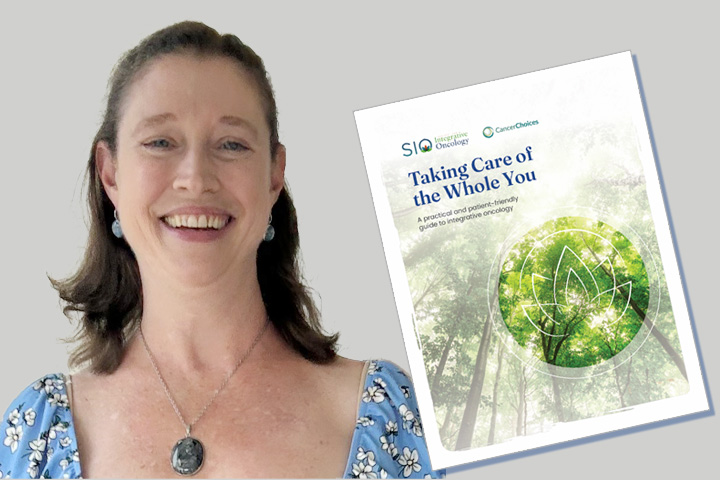ASCO 2023: Pancreatic Cancer Research Update

The 2023 ASCO Annual Meeting brought together some of the most promising research being done in cancer care across the world.
The meeting, held June 2-6, in Chicago, Illinois, covered a broad range of cancers and featured more than 200 sessions, with pancreatic cancer research well represented. As always, Let’s Win will cover several of these promising studies in more depth in the coming months. Here are just a few of the highlights.
Immunotherapy Vaccine for Specific KRAS Mutations
AMPLIFY-201 is a first-in-human multicenter phase I trial for patients with high-relapse risk with KRAS G12D- or G12R-mutated pancreatic and colorectal cancers. The trial assessed safety, immunogenicity, and antitumor activity using a novel adjuvant trial design for patients with minimal residual disease following standard locoregional treatment. RAS mutations occur in 25 percent of solid tumors, with G12D being the most frequent variant. ELI-002 2P is a vaccine. The researchers found there were no dose-limiting toxicities, treatment-related serious adverse effects, or cytokine release syndrome. Also, no maximum tolerated dose was identified. A high proportion of patients had tumor biomarker reduction (79 percent), with 21 percent having complete clearance. Robust mKRAS-specific T cell responses were induced in 80 percent of patients.
Neoadjuvant FOLFIRINOX versus Surgery for Resectable Pancreatic Cancer
Results from the NORPACT-1 clinical trial showed that neoadjuvant chemotherapy does not provide a survival benefit over upfront surgery in resectable pancreatic cancer located in the head of the pancreas. In a phase II trial, researchers found that patients who received a short course of FOLFIRINOX before surgery had similar overall survival as patients who were treated with surgery upfront. The FOLFIRINOX regimen has been shown to prolong survival for patients with metastatic disease. It also demonstrated encouraging results as downstaging chemotherapy in locally advanced pancreatic cancer. The randomized phase II NORPACT-1 study explored the regimen’s efficacy among 140 patients with resectable cancer in the head of the pancreas across 12 cancer centers in Scandinavian or Nordic countries between 2017 and 2021. The study population had a median age of 66.5 years and ECOG performance status of zero.
Increased Survival Time for NALIRIFOX
Results from the phase III NAPOLI-3 trial found that NALIRIFOX (liposomal irinotecan plus 5-fluorouracil/leucovorin and oxaliplatin) showed statistically significant and clinically meaningful overall survival and progression-free survival benefits compared with gemcitabine plus nab-paclitaxel among never-treated patients with metastatic pancreatic cancer. The study findings indicated that the median overall survival in patients treated with NALIRIFOX was 11.1 months versus 9.2 months among those treated with gemcitabine and nab-paclitaxel. Additionally, the 12- and 18-month progression-free survival rates in each respective arm were 45.6 percent versus 39.5 percent and 26.2 percent versus 19.3 percent.
Understanding Mutations by Race and Ethnicity through AACR Project GENIE
KRAS, TP53, SMAD4, and CDKN2A are recognized as the most common somatic (non-inherited) mutations among patients with pancreatic cancer. But previous genomic studies have focused disproportionately on non-Hispanic white patients with little to no inclusion of racial and ethnic minorities, particularly Hispanic and non-Hispanic Black patients. Additionally, little is known about the distribution of KRAS point mutations in pancreatic cancer in specific racial and ethnic groups. AACR Project GENIE is a publicly accessible cancer registry of genomic data assembled through data sharing between 19 leading international cancer centers. In this study, TP53, PTPRT, GNAS, and ARID1A mutations were shown to occur at different frequencies in specific racial and ethnic groups. The G12D mutation of KRAS was disproportionately increased in Hispanics. The researchers say differences in the molecular landscape among racial and ethnic groups could contribute to precision medicine strategies to better treat pancreatic cancer.
Chemotherapy Dose Density and Effect on Prognosis: A Secondary Analysis of SWOG S1505
SWOG S1505 was a randomized phase II study of perioperative and adjuvant chemotherapy with mFOLFIRINOX or gemcitabine/nab-paclitaxel for resectable pancreatic cancer. Dose density was defined as the estimated percent of chemotherapy dose received of the total planned per protocol. This is the first study to identify a prognostic role for chemotherapy dose density in patients undergoing perioperative chemotherapy for resectable pancreatic cancer. Patients who received higher dose density preoperatively and perioperatively had significantly higher median overall survival than those receiving a smaller proportion of protocol therapy. The researchers say that with greater survival benefit in patients who received higher chemotherapy dose density and higher dose density being likelier in preoperative treatment, the results support the use of of neoadjuvant chemotherapy for resectable pancreatic cancer.
Monoclonal Antibody in Combination with mFOLFIRINOX
Mitazalimab is a monoclonal antibody that targets CD40 and kickstarts the cancer immunity cycle. The data for the OPTIMIZE-1 phase Ib/II study presented at ASCO demonstrate that mitazalimab in combination with mFOLFIRINOX is a feasible treatment regimen for first-line pancreatic cancer patients, with encouraging interim efficacy and a well-manageable safety profile, consistent with mFOLFIRINOX monotherapy. The analysis also showed that eight patients achieved stable disease resulting in a 91 percent disease control rate, and six of the seven patients who began treatment at least six months prior to the interim analysis cutoff were still on treatment. Of these, two patients had been receiving treatment for more than 11 months.
Most Effective Chemotherapy for KRAS G12C-Mutated Pancreatic Cancer
Frontline treatment for advanced pancreatic cancer has been either FOLFIRINOX or gemcitabine and nab-paclitaxel. In this study, researchers wanted to see whether certain subgroups may get more benefit from gemcitabine-nab-paclitaxel. In patients with advanced PDAC and a G12C mutation, median overall survival appears significantly longer in those treated with gemcitabine/nab-paclitaxel compared to FOLFIRINOX. The opposite trend was seen in patients with other KRAS variants including G12D, G12V, and G12R, consistent with the recently presented NAPOLI-3 trial. Validation needs to be performed with larger data sets. The recommended next steps include evaluating DNA mutational status and RNA expression of genes involved in DNA repair in G12C versus other KRAS variants.






